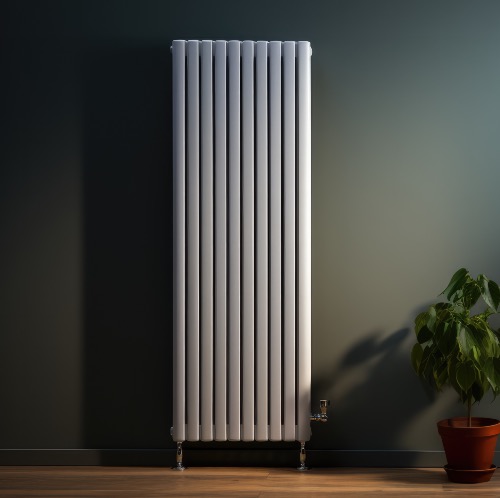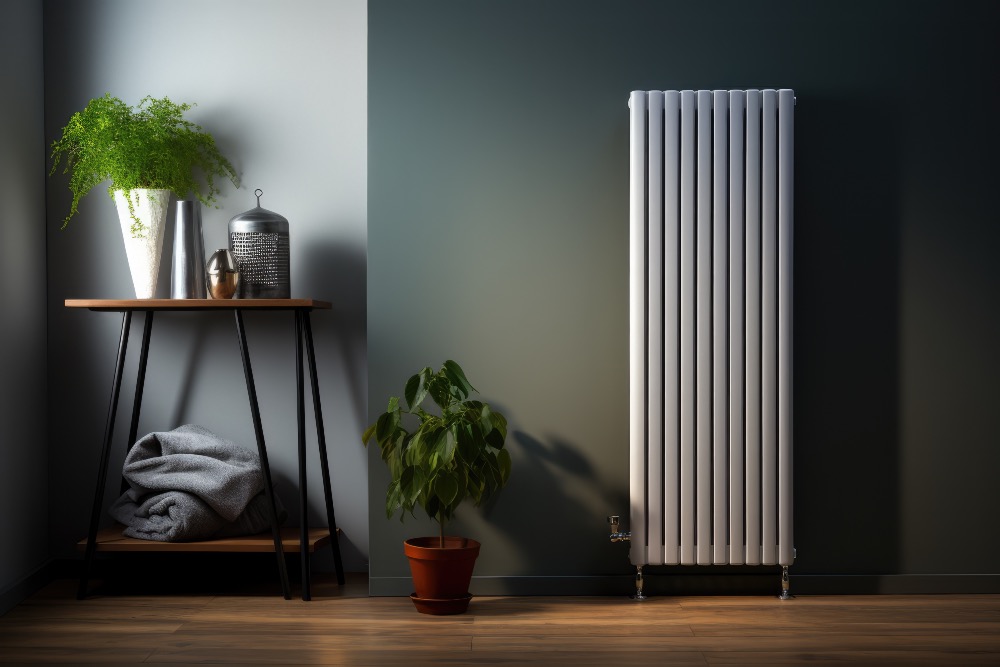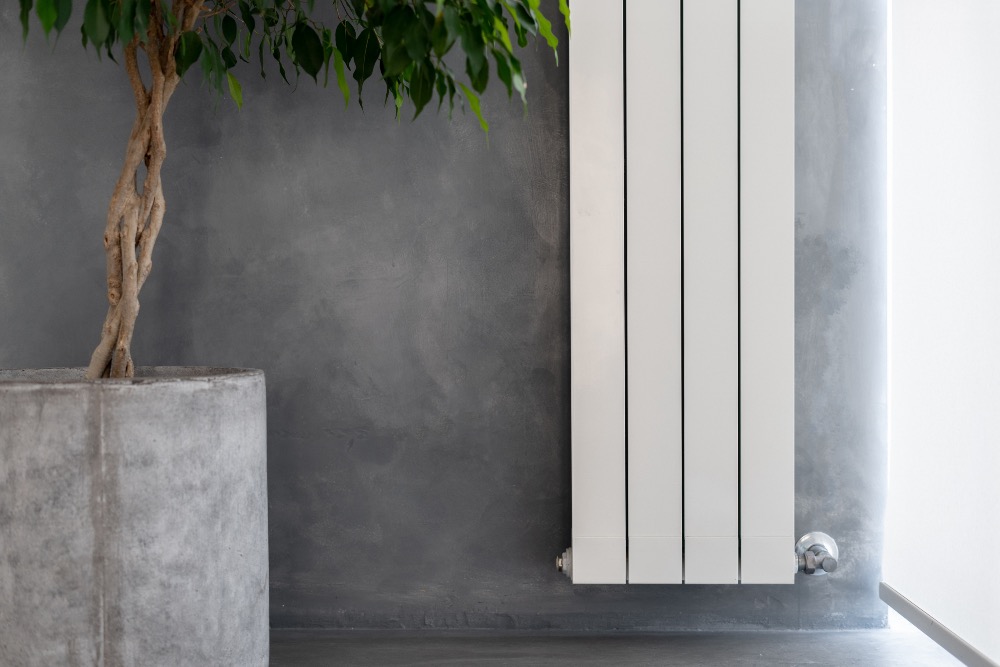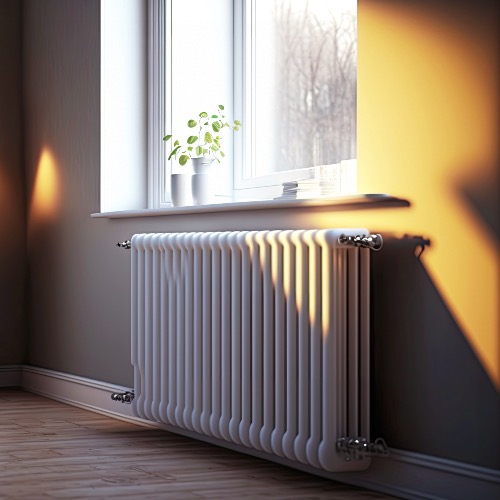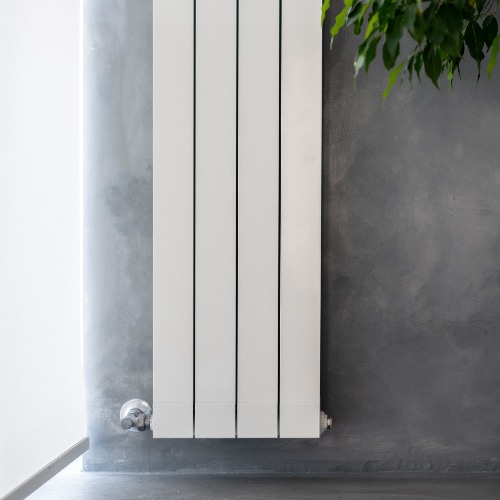Did you know that upgrading your radiators may not only enhance your home's warmth but also its style?
Radiators are often considered to be one of the most reliable features of a property's heating system, and as such they are often taken for granted. They have long lifespans and low maintenance requirements, but like anything else, over time, radiators can become less efficient, develop leaks, or suffer from corrosion, leading to reduced efficiency, reduced heat output and higher energy bills. Even the most durable radiators will eventually need to be replaced.
So how do you know when you should replace radiators? Unfortunately, there is no easy answer to this question, but in this article, we'll explore some of the signs that indicate it may be time for an upgrade.
When should you replace radiators and do radiators have a typical lifespan?
The lifespan of a radiator can vary greatly depending on several factors. A well-maintained radiator can last anywhere from 10 to 15 years, and in some cases even longer. However, older radiators that have not been properly maintained may only last for a few years before they need to be replaced.
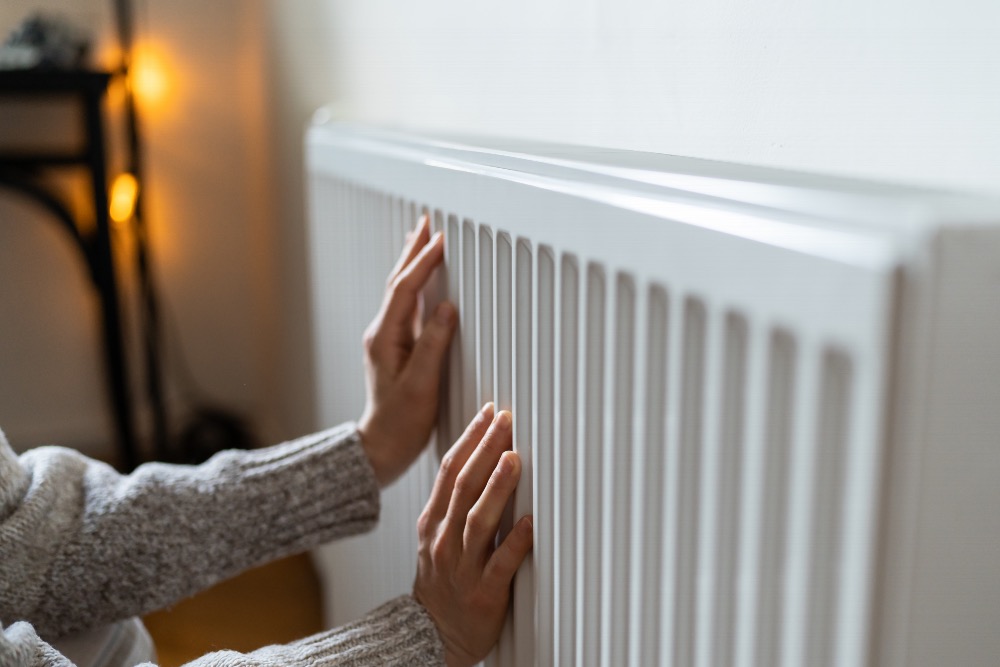
One of the main factors that can affect the lifespan of a radiator is the quality of the materials used to make it. Radiators that are made from high-quality materials, such as cast iron or stainless steel, tend to last longer than those made from cheaper materials.
Regular maintenance is also a key factor in prolonging the life of a radiator. This includes bleeding the radiator to remove any trapped air, regularly dosing your system with a chemical inhibitor, cleaning the exterior surfaces, and checking for any signs of corrosion or leaks. By taking proactive steps to maintain their radiators, property owners can extend their lifespan and reduce the likelihood of costly repairs or replacements.
However, even with regular maintenance, there will eventually come a time when you wonder when should you replace radiators and decide to go ahead and change them. As radiators age, they can become less efficient, leading to higher energy bills and reduced heat output.
Furthermore, it might be surprising to know that radiator technology has advanced significantly over the years, resulting in improvements in both appearance and functionality. In fact, newer models such as vertical radiators have become increasingly popular due to their sleek and modern design. If you have older radiators, you may notice that they don't look as attractive as newer models, which could detract from the overall visual appeal of your property.
What problems should I be looking out for?
Radiator failure is usually not attributable to a single event. Rather, it is commonly caused by gradual deterioration such as pinhole leaks from long-term corrosion, or blockages within the radiator panels leading to cold spots.
For instance, if you observe that your radiator is no longer heating up to its usual standard or if some parts of the radiator are colder than others, this could be indicative of inadequate hot water circulation within the radiator. While radiator bleeding or valve replacement may remedy the issue in certain cases, if the problem persists, replacing the radiator entirely might be necessary.
What should I look for in a new radiator?
Over the years, the world of radiator design and performance has seen significant advancements. These changes have been driven by design improvements, material advancements, and more efficient manufacturing techniques. We'll go into this in more detail now.
Radiator Panel Design
Today, there are many new styles of radiators available on the market, such as oval panel or square panel radiators. Double panelled radiators also give you the opportunity to get a more powerful radiator whilst sacrificing relatively little extra space.
Radiator Orientation
Vertical radiators have become more popular in recent times. They offer a space-saving solution without compromising on power. They free up horizontal space, allowing for more efficient room layouts. On the flip side, horizontal radiators maintain a classic aesthetic and preserve valuable wall space at eye level.
Radiator Styles
If you're someone who loves the look of traditional radiators but also wants the benefits of new technology, there are options which blend classic designs with modern technology, allowing you to enjoy the best of both worlds.
Wrapping Up
In addition to improving the look of your home, replacing your radiator can also improve the efficiency and effectiveness of your heating system. Newer radiators are often designed with energy efficiency in mind, helping you to save money on your heating bills while staying warm and cozy throughout the year. They can also heat up more quickly and evenly than older models, providing a more comfortable living environment.
Frequently asked questions
How do I know it's time to replace my radiator?
Signs that it's time for a replacement include noticeable rust, leaks, cold spots, and a significant decrease in heating efficiency. If your radiator requires frequent bleeding or repairs, it might be more cost-effective to upgrade.
How do I choose the right radiator for my home?
Consider the size of the room, the location for the radiator, your interior design, and your heating needs. Vertical radiators are great for tight spaces, while designer radiators can add a touch of style. Consulting with a heating expert can also provide tailored advice.
What are the benefits of upgrading my radiator?
New radiators offer improved energy efficiency, leading to lower heating bills. They also provide better heat distribution, faster warming times, and can enhance the aesthetic appeal of your space with modern designs.
Can new radiators really save me money on energy bills?
Absolutely. Modern radiators are designed to be more energy-efficient, requiring less water to heat up and distributing warmth more effectively throughout the room, which can significantly reduce your energy consumption.
Are vertical radiators better than horizontal ones?
It depends on your space and aesthetic preferences. Vertical radiators are great for saving wall space and can be a stylish feature in a room, while horizontal radiators may fit better under windows or in traditional settings. Both types can be equally efficient.
How long does a radiator typically last before needing replacement?
The lifespan of a radiator varies based on material, design, and maintenance, but on average, a well-maintained radiator can last between 15 to 20 years. Regular maintenance can extend this lifespan, but advancements in technology might make an upgrade desirable sooner.
Is it difficult to replace a radiator? Do I need a professional?
While it's possible for a DIY enthusiast with the right tools and knowledge to replace a radiator, hiring a professional is recommended to ensure a correct and safe installation, especially if modifications to the piping or heating system are required.
Will a new radiator work with my existing heating system?
In most cases, yes. Modern radiators are designed to be compatible with existing heating systems. However, it's important to choose the right size and type of radiator for your system's capacity and layout for optimal performance.
Can I add more radiators to my existing heating system?
It's possible to add more radiators, but this should be done with consideration of your boiler's capacity and the need for potential system upgrades to accommodate the additional demand.
Any more questions?
If you have any queries or questions about the products we sell, or even your next project, give us a shout! We'll try our best to give you a hand.
